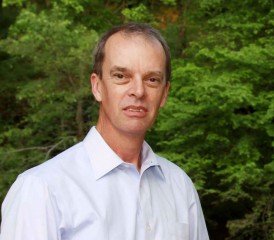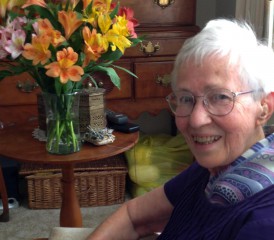Mesothelioma Survivor Is Man of Faith, Children’s Role Model

Fact Checked | Written by: Tim Povtak | Last Update: 10/24/2024 | 5 Min Read
Mesothelioma survivor Richard M. smiled when the mother of a fourth-grader recently thanked him and the rest of the White County School Board in Tennessee for implementing the new reading program that ignited her child’s newfound interest in academics.
He shared in her joy.
It was the same feeling he received as a Boy Scouts of America leader when a once-troubled youngster in his troop proudly displayed a collection of merit badges he had earned.
The emotion reminded him of when he served as a Sunday school teacher, and every child in his class understood the day’s message about Jesus Christ and his disciples.
When Richard was hospitalized for Hodgkin lymphoma 40 years ago, he happily climbed out of bed to help an elderly, dying patient finish building a doll house he had started for his granddaughter.
Serving others is his passion.
Even now as he wrestles with the uncertainty of pleural mesothelioma, it feels good to help others. That service to his fellow man has helped him survive, too.
“I just find the opportunity to do something for someone else very rewarding [and] uplifting,” he told Asbestos.com from his home in Sparta, Tennessee. “[Mesothelioma] forced me to quit work and retire earlier than I wanted to, but it opened other opportunities. I found the silver lining in it.”
Three Years and Still Helping Others
Richard, now 60, grew puzzled by the shortness of breath he kept experiencing. In July 2012, he was diagnosed with mesothelioma — a stunning turn of events for someone who had beaten cancer decades before.
A quick diagnosis, an aggressive pleurectomy/decortication surgery by Nashville surgeon Dr. John Roberts of the TriStar Medical Group, and a subsequent immunotherapy clinical trial at the Sarah Cannon Research Institute in Nashville has extended Richard’s life well beyond the original prognosis.
But the disease stole his stamina.
He tires easily and naps regularly. Long walks are out of the question, but long talks are not. He rides a lawn mower now, instead of pushing one. He sits on the front porch and enjoys the view, instead of changing the view with the landscaping tools he once used so often.
“It’s easy to be overcome with the trauma of a cancer diagnosis. But having gone through it before helped me this time,” he said. “It certainly changes what you thought your life was going to be like, but you just make the best of it. You can be bitter and sad, or you can make something good happen.”
Thriving on the School Board
Richard resigned from his Boy Scouts of America leadership role, but he continues to thrive on the White County School Board, where he impacts the lives of so many. He recently attended a three-day statewide seminar to help school board members work more effectively.
He was instrumental in implementing an innovative and much-needed reading program for the mostly rural county in Tennessee, raising the reading proficiency level significantly across the region.
His own two children are grown and already successful, but he still loves helping other youngsters in his community.
“When you’re working full-time, and you have children to raise, you don’t always have time to take on something like the [school board],” he said. “My forced retirement gave me this opportunity. I don’t always feel well, but I still have the energy, drive and the time to do it.”
Richard and his wife are living now in an ancestral home that has housed three generations. The roots are deep.
His Involvement in a Clinical Trial
For more than two years now, the couple has been making the 100-mile drive to Nashville every three weeks for his clinical trial treatment involving BAY94-9343.
The drug is a targeted therapy that has shown success in temporarily stopping or slowing tumor growth with ovarian and pancreatic cancers, as well as mesothelioma. This trial is the first one using the drug on human test subjects.
“I was glad to step up and try and help the drug-development process. And I think they were happy to have a relatively young, otherwise healthy patient participate,” Richard said. “It was an opportunity to contribute. I’m not a doctor, and I’ll never be one, but I can be a good patient for them. Maybe they can learn something from me.”
The side effects have been unpredictable, but minimal compared to what happened with the chemotherapy that stopped working for him before the trial began. There is considerable fatigue at times — walking back and forth from the mail box can be a journey — but it’s nothing that prevents him from living his new life.
A Man of Faith
“You have to embrace reality. I’m a man of faith, so I believe this all happened for a reason,” he said. “People sometimes talk to a cancer patient like he is fragile, like he is worried about his mortality, but even totally healthy people don’t have the promise of another day any more than I do.”
Richard often chats with others getting treatment at Sarah Cannon. He tries to help. He actively participates in The Mesothelioma Center’s monthly support group meetings. He regularly brings a positive tone to the discussion, encouraging others who are looking for hope.
His optimism is contagious, too. He intends to continue his role on the school board for as long as he physically can, expecting to run for re-election in 2016.
“I’ve been lucky with mesothelioma. I found the right medical people. I went from diagnosis to treatment quickly. I got a great surgeon. I’m in a trial now that has allowed me to live a fairly good life — all things considered,” Richard said. “In a lot of ways, I feel fortunate.”





